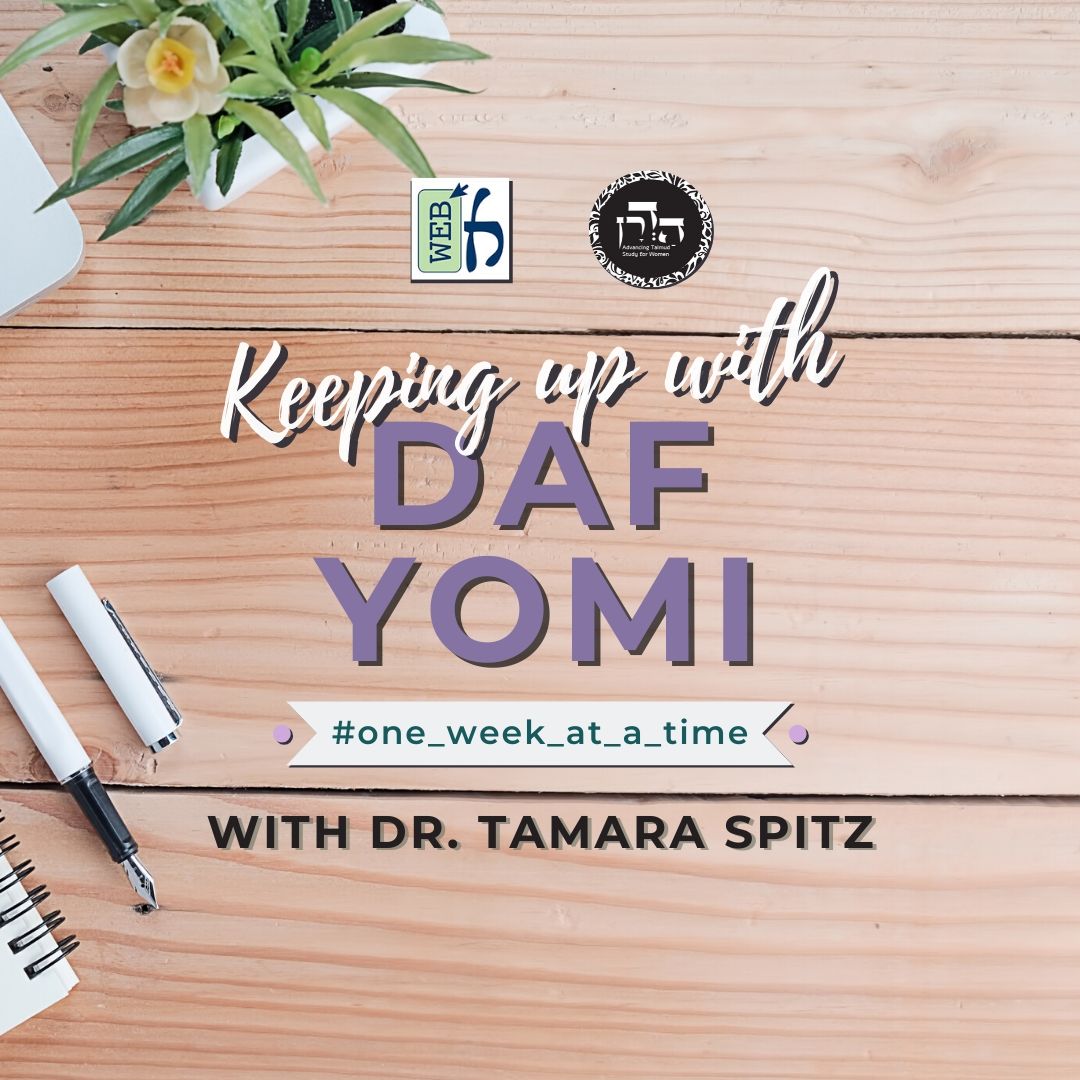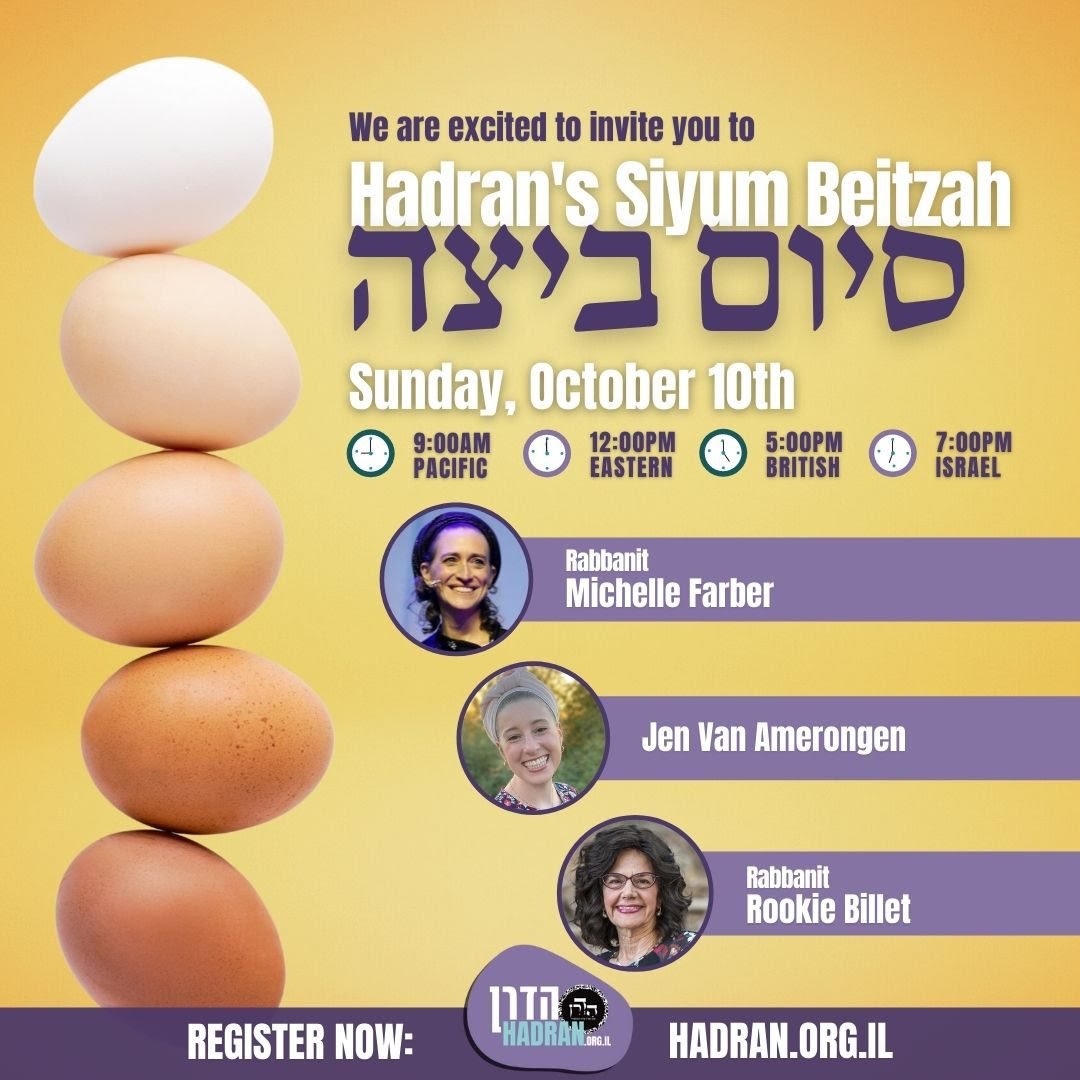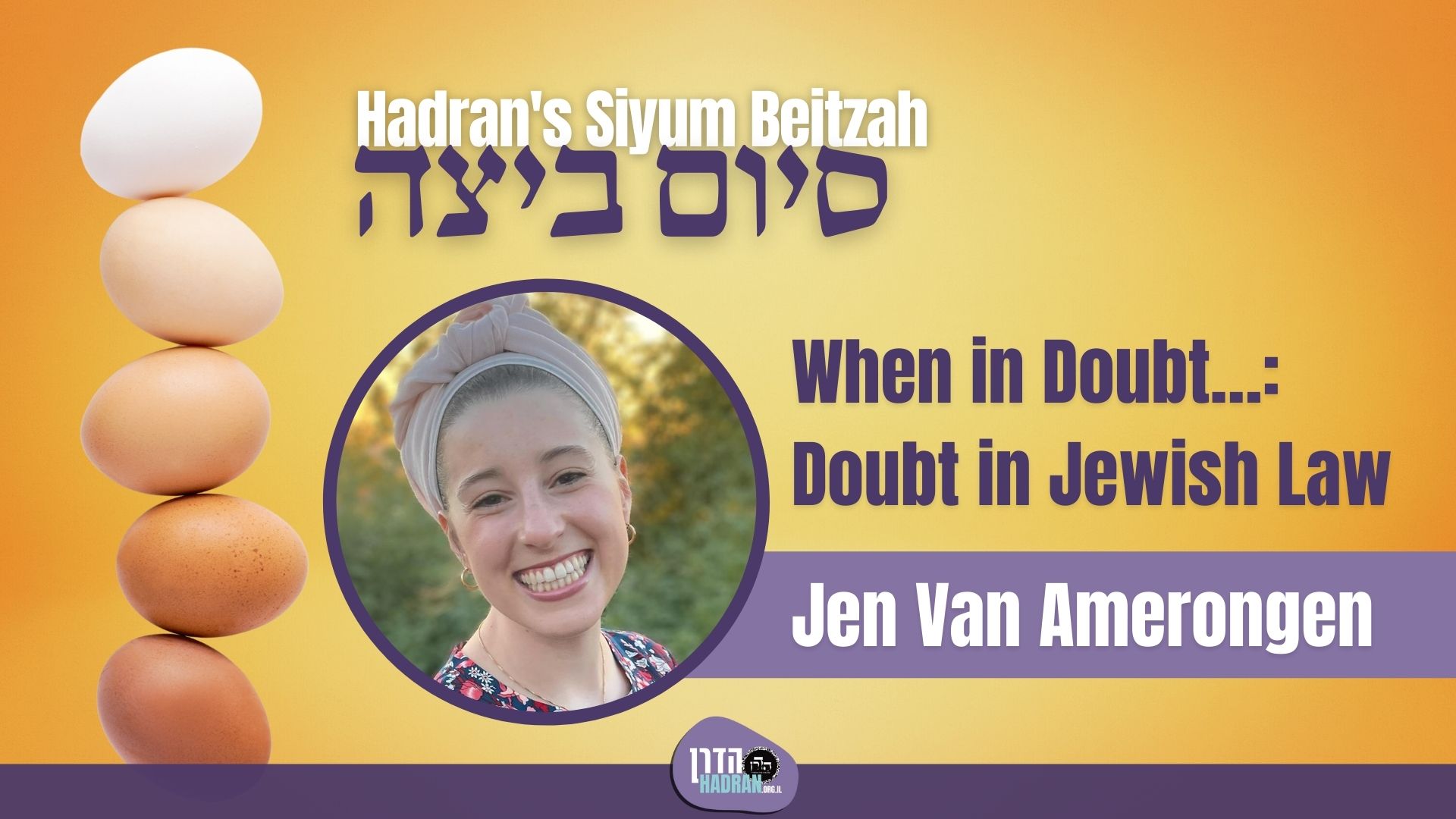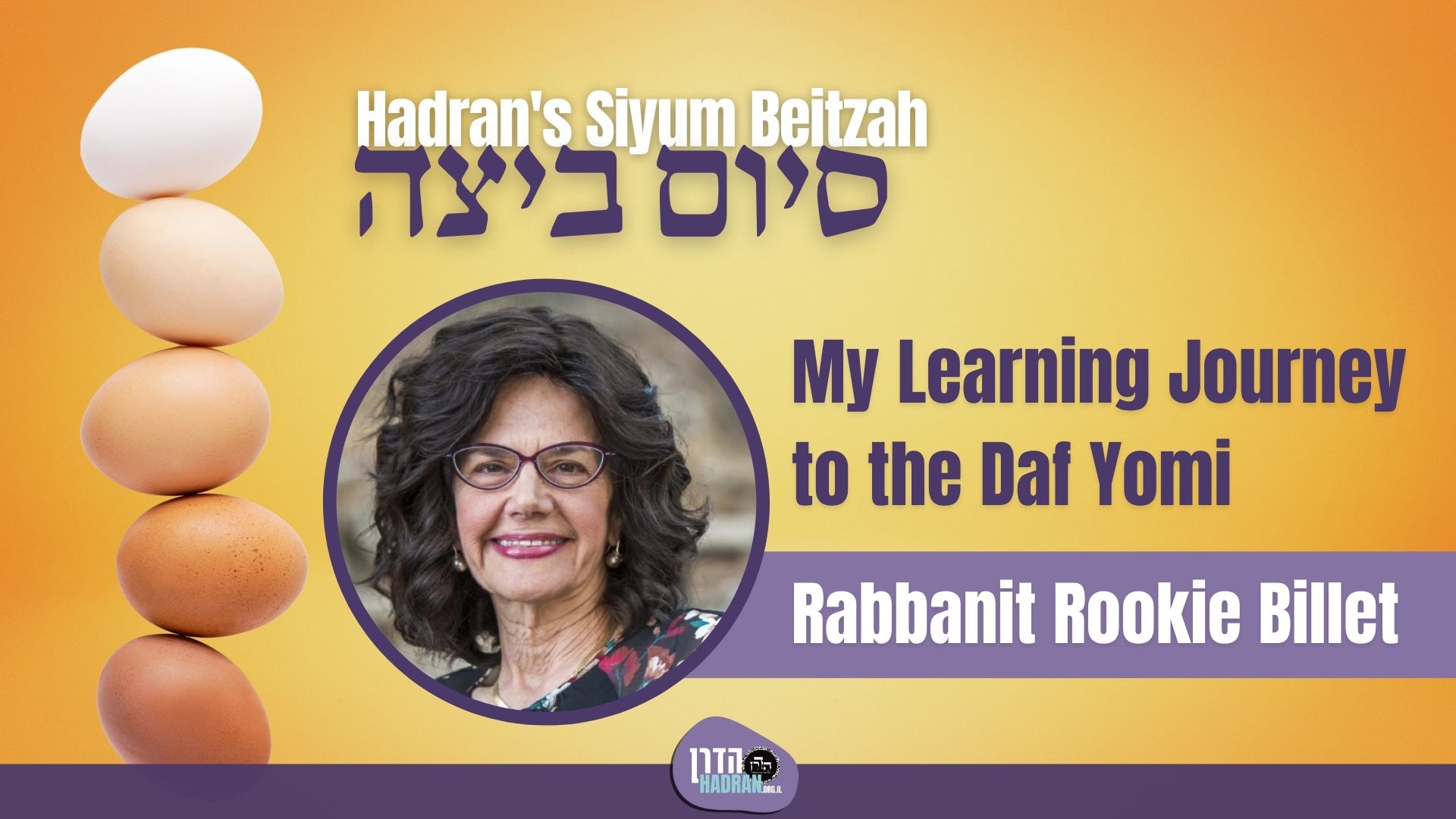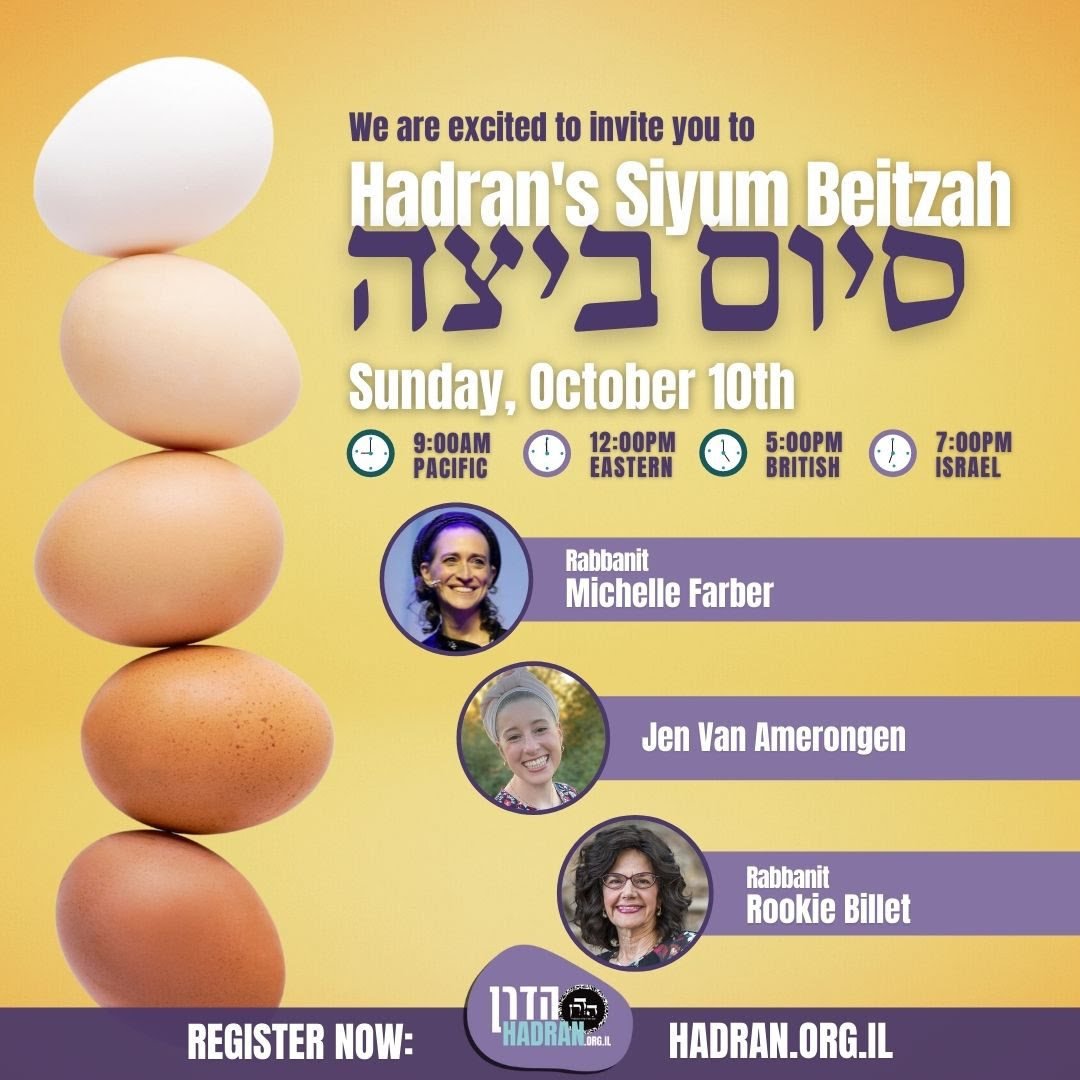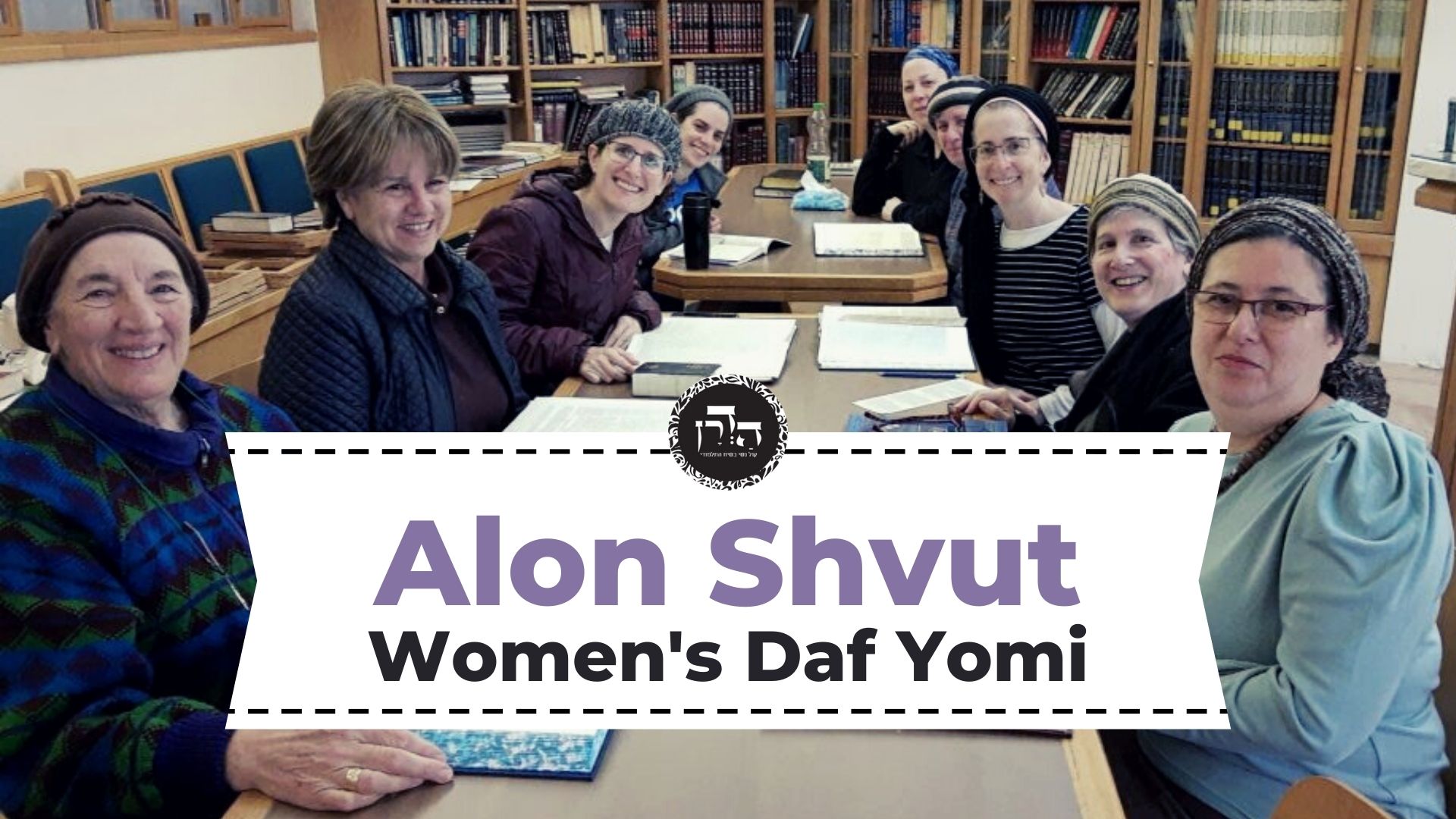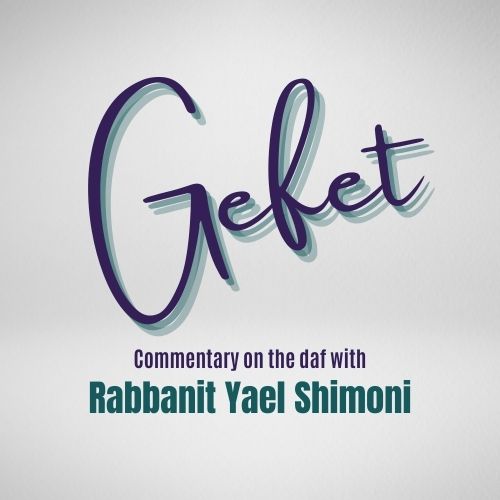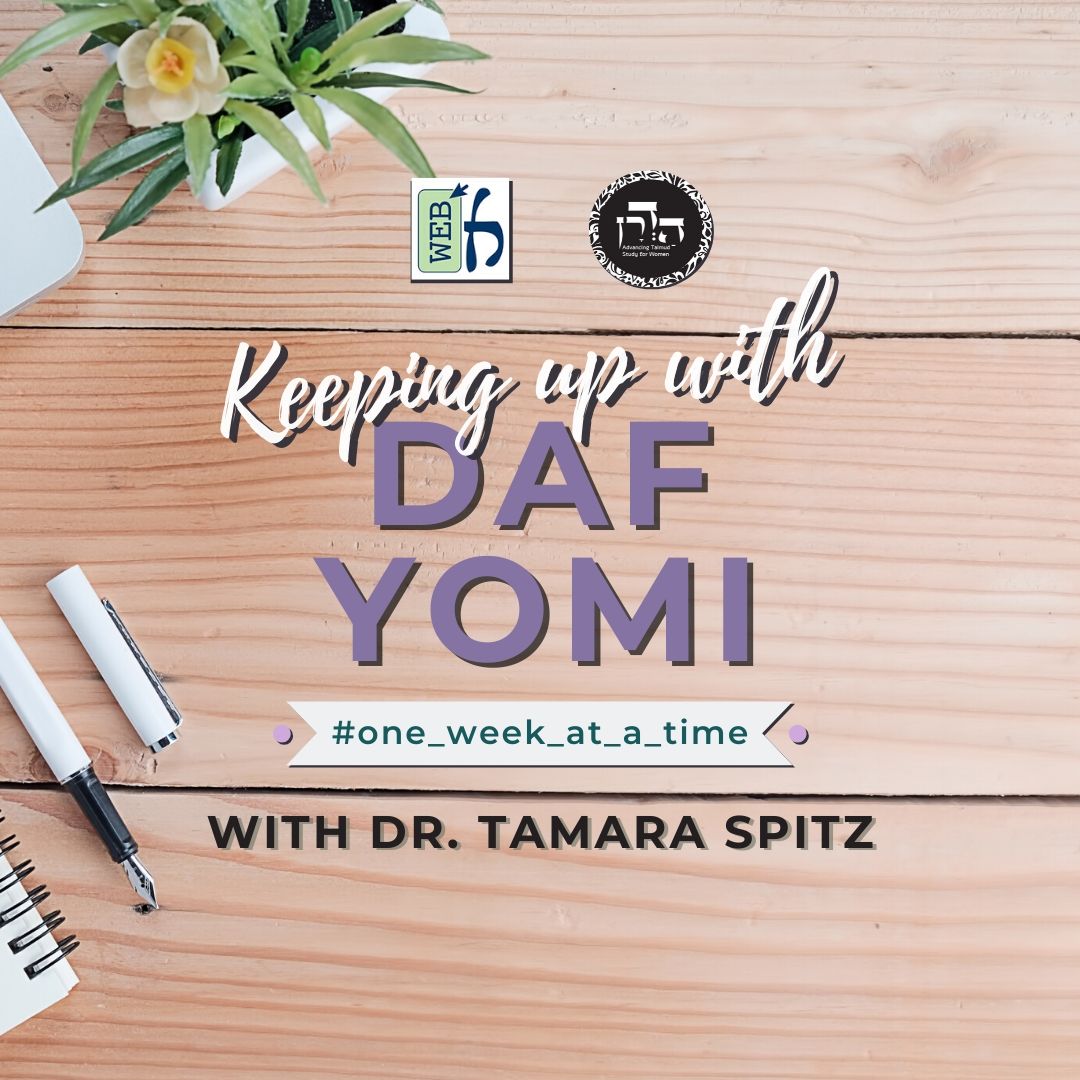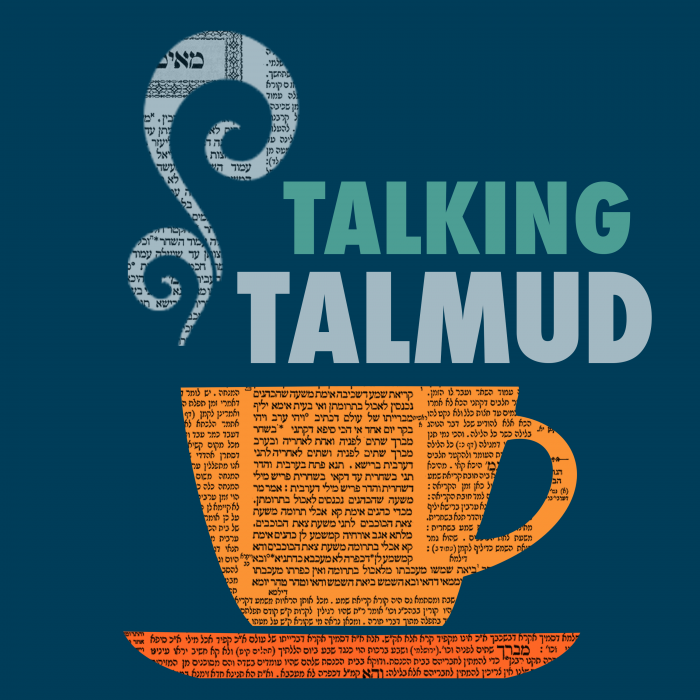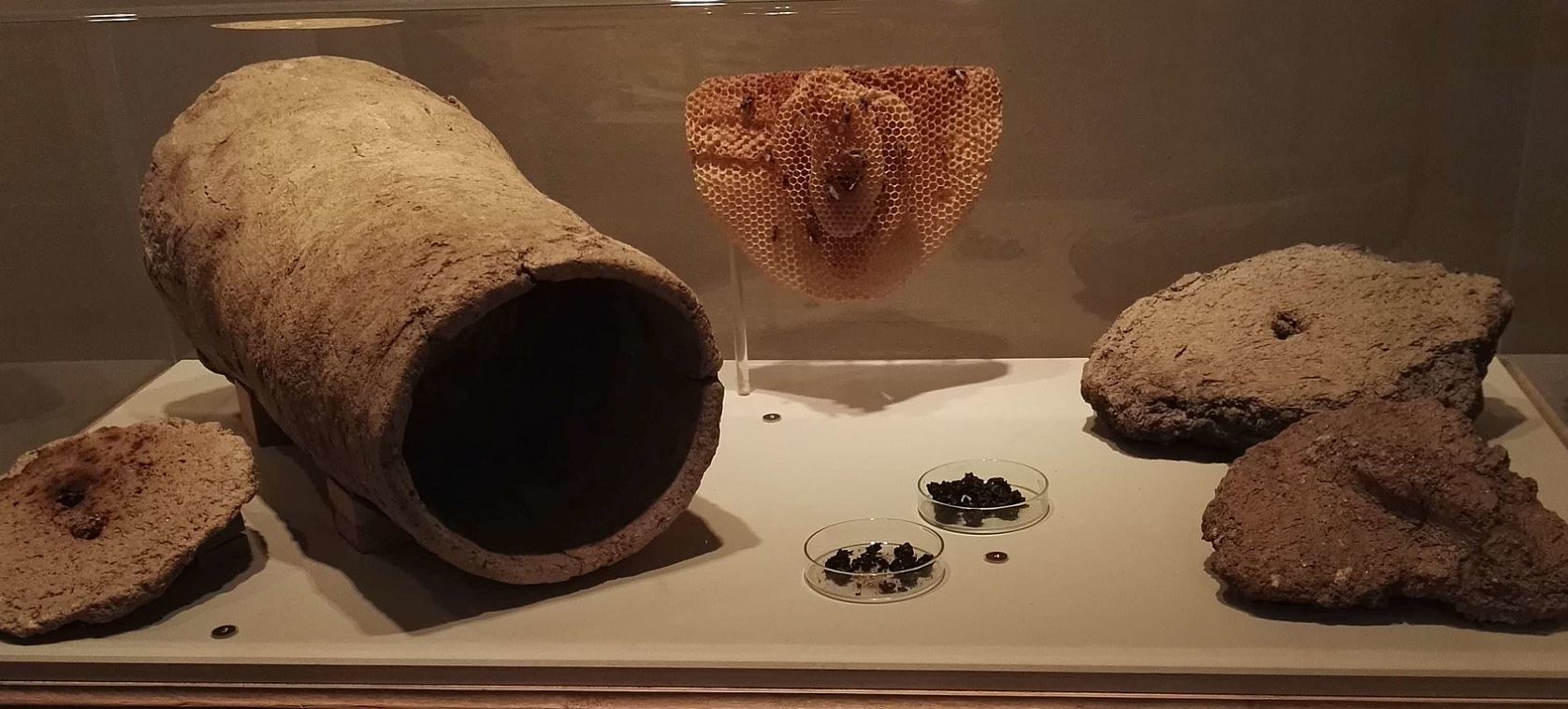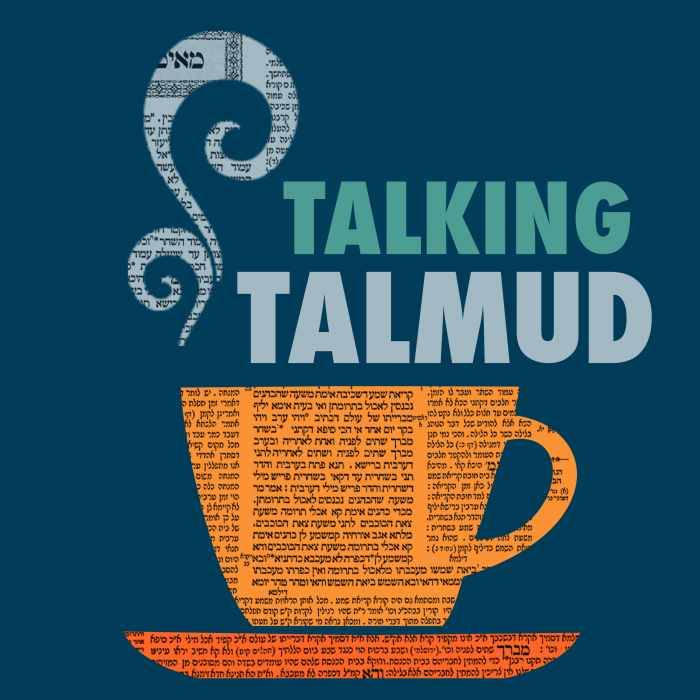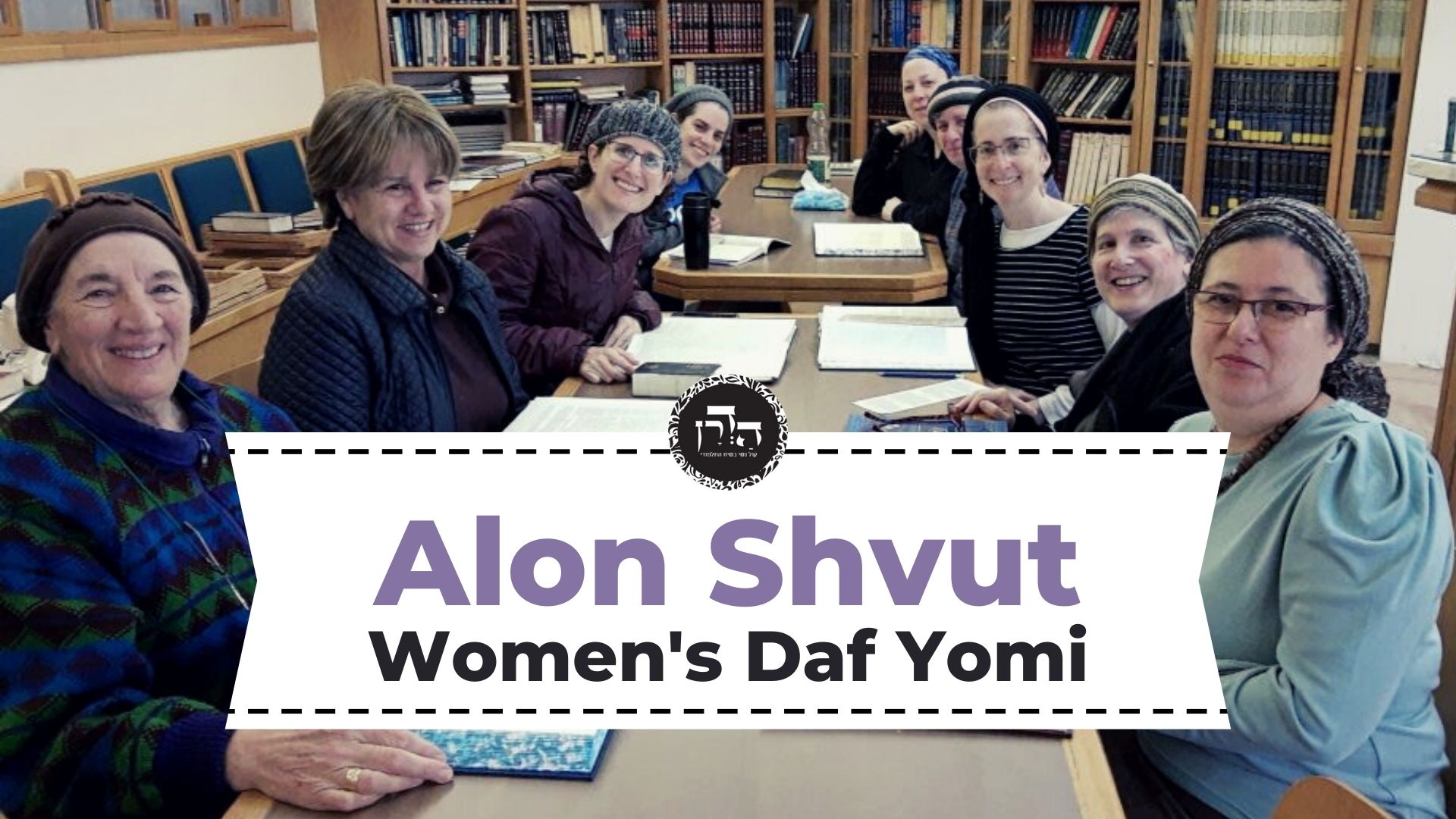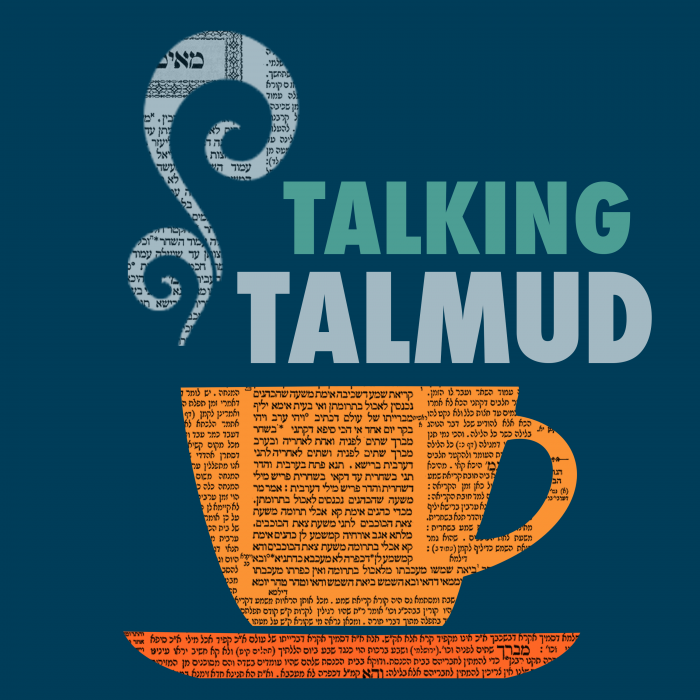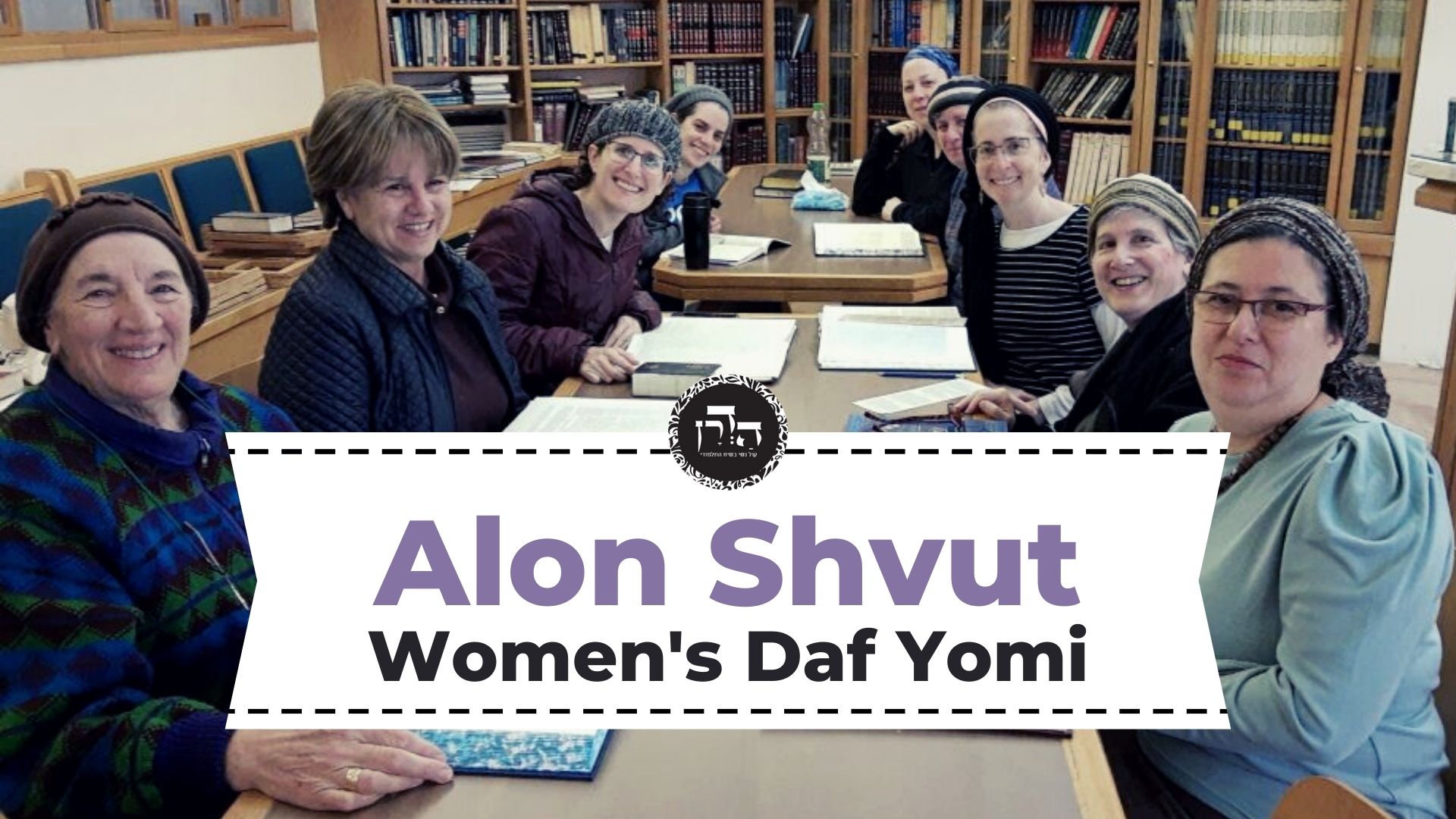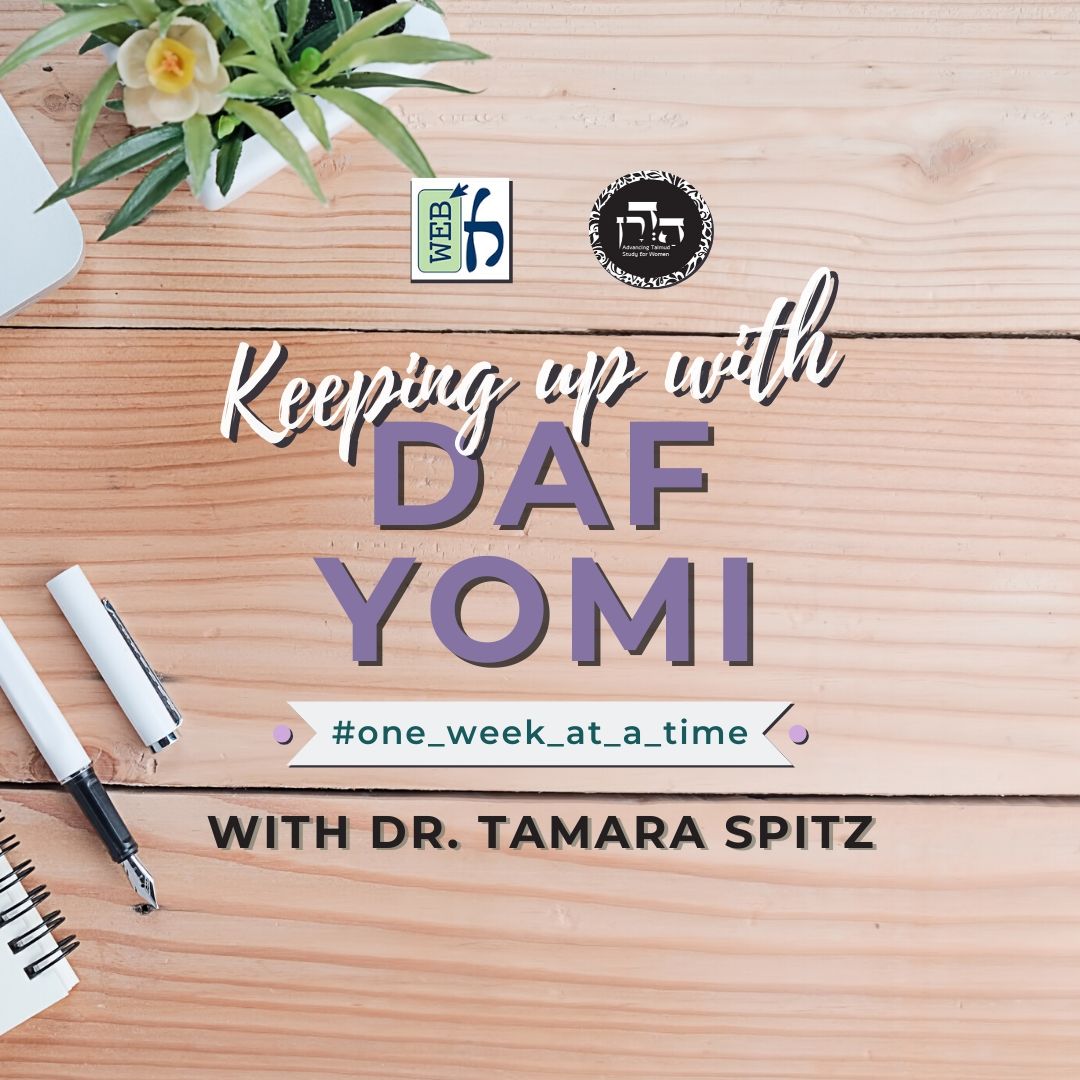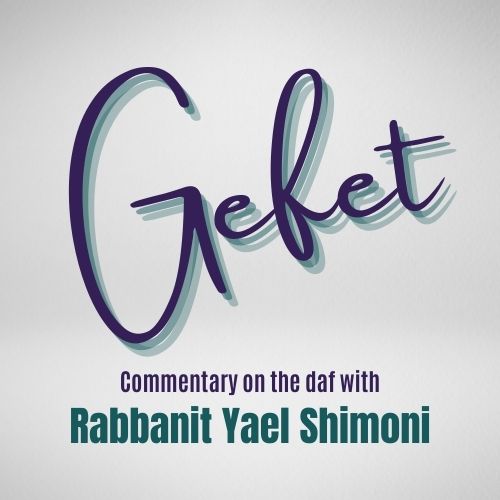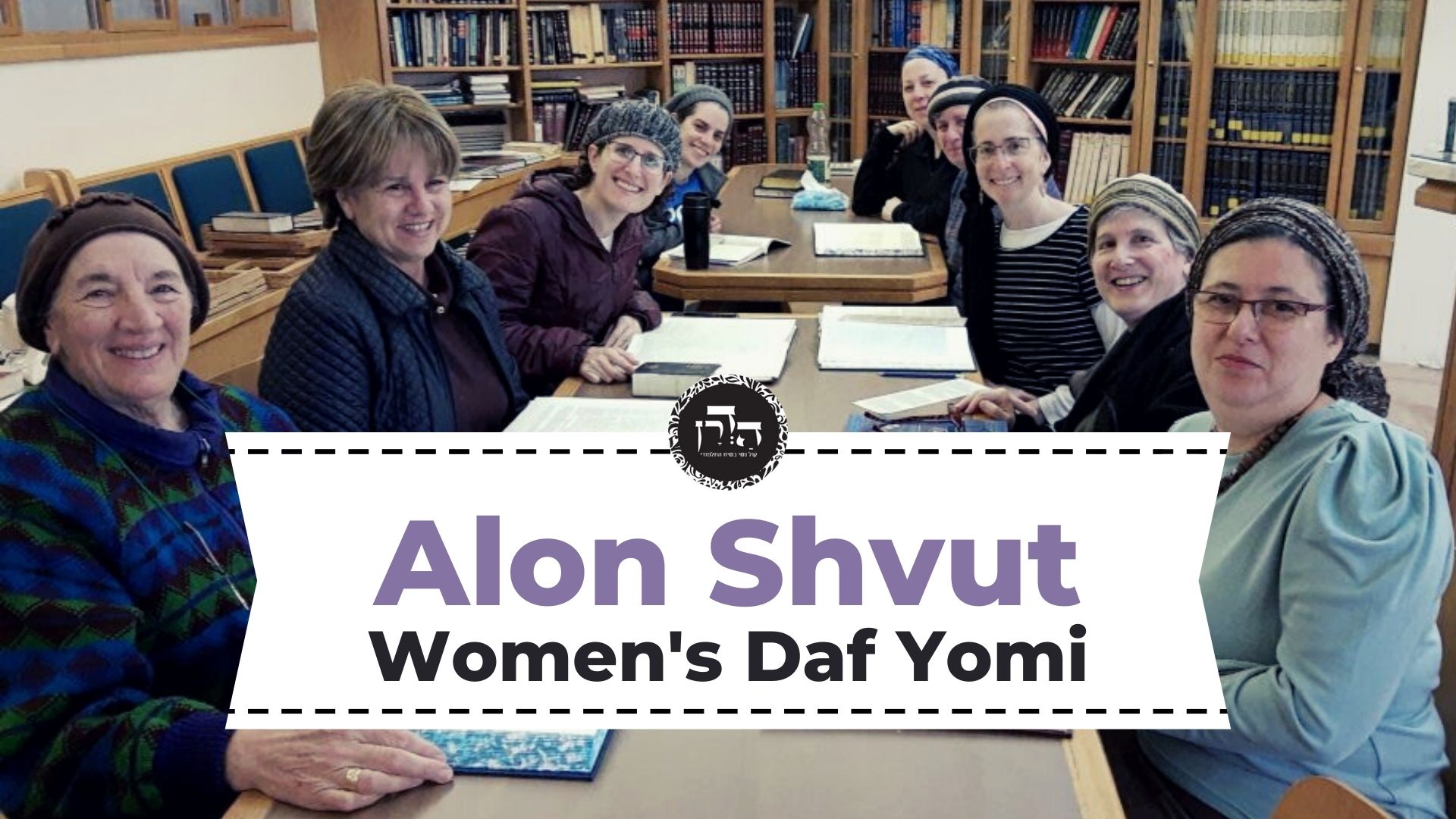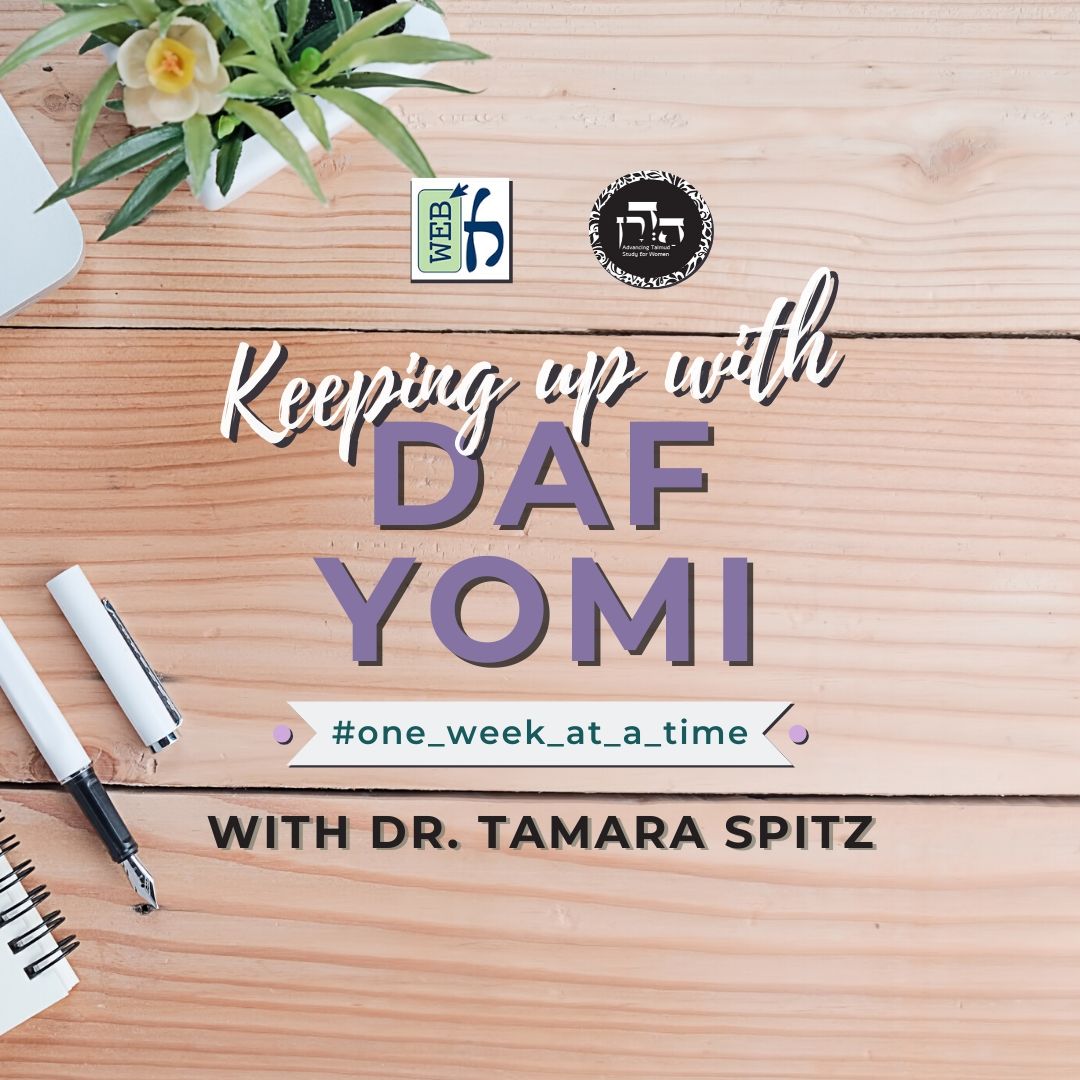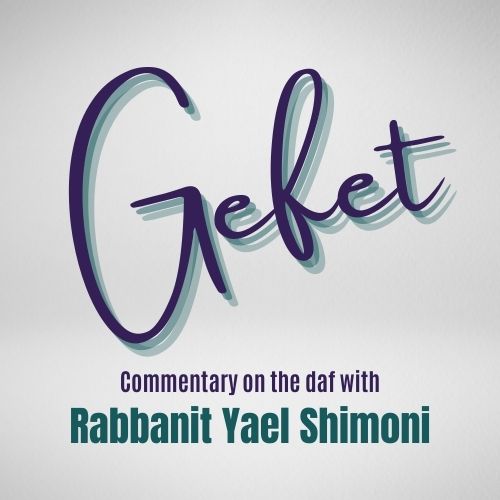Beitzah 7
דְפָחֲיָא לְמַאן? יְהַבוּ לֵיהּ בֵּיעֵי דִשְׁחוּטָה. אֲתָא לְקַמֵּיהּ דְּרַבִּי אַמֵּי, אֲמַר לְהוּ: מִקָּח טָעוּת הוּא, וְהָדַר.
of a live chicken, who has? He sought to purchase eggs of this kind. They gave him eggs of a slaughtered chicken. He came before Rabbi Ami, claiming he had been cheated. Rabbi Ami said to the sellers: This is a mistaken transaction, and it is rescinded; the sale is void.
פְּשִׁיטָא! מַהוּ דְּתֵימָא: הַאי לַאֲכִילָה קָא בָּעֵי לְהוּ, וְהַאי דְּקָאָמַר דְּפָחֲיָא — מִשּׁוּם דִּצְרִיבָן, לְמַאי נָפְקָא מִינַּהּ — לְמִיתְּבָא לֵיהּ בֵּינֵי בֵּינֵי, קָא מַשְׁמַע לַן.
The Gemara asks: It is obvious that the transaction is void, as he specified exactly what he wanted. The Gemara answers: The ruling is necessary, lest you say that this individual wants them for food rather than for chicks, and that which he said, that he is looking for eggs of a live chicken, he said only because they are hard-shelled, mature eggs. What is the practical difference, i.e., what is this man claiming from the seller according to this rejected interpretation? He is merely demanding to refund him the difference in value between the two types of eggs. Rabbi Ami therefore teaches us that the sale involved a fundamental error, as the eggs of a slaughtered chicken are unfit for incubation. The transaction is therefore void.
הָהוּא דַּאֲמַר לְהוּ: בֵּיעֵי דְּדִכְרָא לְמַאן! בֵּיעֵי דְּדִכְרָא לְמַאן! יְהַבוּ לֵיהּ בֵּיעֵי דְּסָפְנָא מֵאַרְעָא. אֲתָא לְקַמֵּיהּ דְּרַבִּי אַמֵּי, אֲמַר לְהוּ: מִקָּח טָעוּת הוּא, וַהֲדַר.
The Gemara relates a similar incident: A certain person said to vendors: Does anyone have eggs of a chicken that has had relations with a rooster? Does anyone have eggs of a rooster? They gave him eggs that a hen had absorbed from the ground, i.e., which had not been fertilized by a rooster. He came before Rabbi Ami claiming that he had been cheated. Rabbi Ami said to them: This is a mistaken transaction, and it is rescinded.
פְּשִׁיטָא! מַהוּ דְּתֵימָא: הַאי לַאֲכִילָה קָא בָּעֵי לְהוּ, וְהַאי דְּקָאָמַר דְּדִכְרָא — מִשּׁוּם דְּשַׁמִּינָן טְפֵי, לְמַאי נָפְקָא מִינַּהּ — לְמִיתְּבָא לֵיהּ בֵּינֵי בֵּינֵי, קָא מַשְׁמַע לַן.
The Gemara again asks: It is obvious that this is the case. The Gemara explains: The ruling is necessary, lest you say that this person wants the eggs for food, and that which he said, that he wants eggs of a rooster, he said only because they are fatter. What is the practical difference; i.e., what is this man claiming from the seller according to this rejected interpretation? He is merely demanding that they should refund him the difference in value between the two types. Rav Ami therefore teaches us that this is not the case; rather, the sale is void.
וְאִי בָּעֵית אֵימָא: מַאי עִם יְצִיאָתָהּ נִגְמְרָה — עִם יְצִיאַת רוּבָּהּ נִגְמְרָה, וְכִדְרַבִּי יוֹחָנָן. דְּאָמַר רַבִּי יוֹחָנָן: בֵּיצָה שֶׁיָּצְאָה רוּבָּהּ מֵעֶרֶב יוֹם טוֹב וְחָזְרָה — מוּתֶּרֶת לְאׇכְלָה בְּיוֹם טוֹב.
The Gemara suggests another explanation of Rav’s statement. And if you wish, say instead: What is the meaning of the claim: An egg is fully formed upon its emergence? It means that it is fully formed with the emergence of most of it, in accordance with the statement of Rabbi Yoḥanan. As Rabbi Yoḥanan said: It is taught in a baraita that in the case of an egg, most of which emerged from the chicken on a Festival eve, and the egg returned inside the mother and was finally laid on the Festival itself, it is permitted to eat this egg on the Festival. Since most of the egg had emerged before the Festival began, it is considered to have been laid the day before.
וְאִיכָּא דְּאָמַר: מַאי עִם יְצִיאָתָהּ נִגְמְרָה — עִם יְצִיאַת כּוּלָּהּ נִגְמְרָה. עִם יְצִיאַת כּוּלָּהּ — אִין, אֲבָל רוּבָּהּ — לָא. וּלְאַפּוֹקֵי מִדְּרַבִּי יוֹחָנָן.
And some say the following explanation: What is the meaning of the expression: Fully formed upon its emergence? It means that it is fully formed upon the emergence of all of it. The Gemara infers: Upon the emergence of all of it, yes, it is fully formed at this stage; however, if only most of it came out the day before, no, it is not considered fully formed. And this reading serves to exclude the statement of Rabbi Yoḥanan. In any case, Rav’s statement can correspond to this statement of Rabbi Yoḥanan.
גּוּפָא: הַשּׁוֹחֵט אֶת הַתַּרְנְגוֹלֶת וּמָצָא בָּהּ בֵּיצִים גְּמוּרוֹת — מוּתָּרוֹת לְאָכְלָן בְּחָלָב. רַבִּי יַעֲקֹב אוֹמֵר: אִם הָיוּ מְעוֹרוֹת בְּגִידִין — אֲסוּרוֹת.
§ Apropos the halakhic status of eggs found inside a slaughtered chicken, the Gemara discusses the matter itself: In the case of one who slaughters a chicken and finds inside it fully formed eggs, it is permitted to eat these eggs with milk. Rabbi Ya’akov says: If the eggs were still attached by sinews, it is prohibited to eat them with milk, as they are considered meat.
מַאן תְּנָא לְהָא דְּתָנוּ רַבָּנַן: הָאוֹכֵל מִנִּבְלַת עוֹף טָהוֹר, מִן הַשְּׁלָל שֶׁל בֵּיצִים, מִן הָעֲצָמוֹת, וּמִן הַגִּידִין, וּמִן הַבָּשָׂר שֶׁנִּתְלַשׁ מִן הַחַי — טָהוֹר.
The Gemara asks: Who is the tanna who taught this halakha that the Sages taught in a baraita: One who eats one of the following parts of the unslaughtered carcass of a kosher bird: From a cluster of eggs that are still attached to it by sinews, or from its bones, or from the sinews, or from meat that has been detached from a live animal, is ritually pure because none of these are considered part of the meat of the bird, and therefore they do not impart the ritual impurity of an animal carcass.
מִן הָאֶשְׁכּוֹל שֶׁל בֵּיצִים, מִן הַקּוּרְקְבָן וּבְנֵי מֵעַיִין, אוֹ שֶׁהִמְחָה אֶת הַחֵלֶב וּגְמָעוֹ — טָמֵא.
However, if one ate from the ovary of its eggs, which contains very small eggs that do not possess any of the regular characteristics of eggs, or if he took a piece of the craw or the intestines, or if he melted the fat of a dead bird and swallowed it, he is ritually impure from the impurity imparted by the unslaughtered carcass of a bird.
מַאן תַּנָּא מִן הַשְּׁלָל שֶׁל בֵּיצִים טָהוֹר? אָמַר רַב יוֹסֵף: דְּלָא כְּרַבִּי יַעֲקֹב. דְּאִי כְּרַבִּי יַעֲקֹב, הָאָמַר: אִם הָיוּ מְעוֹרוֹת בְּגִידִין — אֲסוּרוֹת!
Who is the tanna who taught that if one ate from a cluster of eggs he is pure, which indicates that eggs still attached by sinews to the chicken are not considered part of the meat of the bird? Rav Yosef said: This ruling is not in accordance with the opinion of Rabbi Ya’akov. For if you say it is in accordance with the opinion of Rabbi Ya’akov, didn’t he say: If the eggs were attached by sinews it is prohibited to eat them with milk, indicating that he considers these eggs meat of the chicken.
אֲמַר לֵיהּ אַבָּיֵי: מִמַּאי? דִּלְמָא עַד כָּאן לָא קָאָמַר רַבִּי יַעֲקֹב הָתָם אֶלָּא לְעִנְיַן אִסּוּרָא, אֲבָל לְעִנְיַן טוּמְאָה — לָא.
Abaye said to Rav Yosef: From where do you draw this conclusion? Perhaps Rabbi Ya’akov stated that these eggs are part of the chicken only there, with regard to the prohibition against eating the eggs with milk; however, perhaps with regard to ritual impurity he did not say that these eggs are considered part of the chicken.
וְכִי תֵּימָא לְעִנְיַן טוּמְאָה נָמֵי נִגְזוֹר — אַפּוֹשֵׁי טוּמְאָה הוּא, וְאַפּוֹשֵׁי טוּמְאָה מִדְּרַבָּנַן לָא מַפְּשִׁינַן.
And if you say that with regard to ritual impurity let us also issue a decree and be stringent in a case of uncertainty and therefore rule that these attached eggs should be considered part of the chicken, this would serve to proliferate impurity, and we do not proliferate impurity that is by rabbinic law. One does not declare an item ritually impure by rabbinic law merely because uncertainty has arisen with regard to its status.
וְאִיכָּא דְּאָמְרִי: מַאן תַּנָּא מִן הָאֶשְׁכּוֹל שֶׁל בֵּיצִים טָמֵא? אָמַר רַב יוֹסֵף: רַבִּי יַעֲקֹב הִיא, דְּאָמַר: אִם הָיוּ מְעוֹרוֹת בְּגִידִין אֲסוּרוֹת. אֲמַר לֵיהּ אַבָּיֵי: מִמַּאי דְּאֶשְׁכּוֹל, מֵהָנָךְ דְּתַלְיָא בְּאֶשְׁכּוֹל? דִּלְמָא אֶשְׁכּוֹל גּוּפֵיהּ.
And some say a different version of this discussion, according to which the question is: Who is the tanna who taught that if one eats from the ovary of its eggs he is ritually impure? Rav Yosef said: It is Rabbi Ya’akov, who said: If the eggs were attached by sinews, they are prohibited. Abaye said to him: From where do you know that the term ovary means: From these eggs that are hanging from the ovary; perhaps it is referring to the ovary itself, the part of the flesh of the bird where the eggs develop?
וְכִי תֵּימָא: אֶשְׁכּוֹל גּוּפֵיהּ מַאי לְמֵימְרָא! מִידֵּי דְּהָוֵה אַקּוּרְקְבָן וּבְנֵי מֵעַיִין, דְּאַף עַל גַּב דְּבָשָׂר נִינְהוּ, כֵּיוָן דְּאִיכָּא אִינָשֵׁי דְּלָא אָכְלִי — אִיצְטְרִיךְ לְאַשְׁמוֹעִינַן, הָכָא נָמֵי: כֵּיוָן דְּאִיכָּא אִינָשֵׁי דְּלָא אָכְלִי — אִיצְטְרִיךְ לְאַשְׁמוֹעִינַן.
And if you say: If it is referring to the ovary itself, what is the purpose of stating this? It is obvious that the ovary itself is meat. One can answer as follows: Just as it is in the case of the craw and the intestines, that even though they are meat according to all opinions, since there are people who do not eat them, it was necessary to teach us that they have the status of meat; here, too, with regard to an ovary, since there are people who do not eat it, it was necessary to teach us that it may not be eaten with milk. Therefore, this argument does not prove that this version of the discussion is incorrect.
תָּנוּ רַבָּנַן: כֹּל שֶׁתַּשְׁמִישׁוֹ בַּיּוֹם — נוֹלָד בַּיּוֹם. כֹּל שֶׁתַּשְׁמִישׁוֹ בַּלַּיְלָה — נוֹלָד בַּלַּיְלָה. כֹּל שֶׁתַּשְׁמִישׁוֹ בֵּין בַּיּוֹם וּבֵין בַּלַּיְלָה — נוֹלָד בֵּין בַּיּוֹם וּבֵין בַּלַּיְלָה. כֹּל שֶׁתַּשְׁמִישׁוֹ בַּיּוֹם נוֹלָד בַּיּוֹם — זוֹ תַּרְנְגוֹלֶת. כֹּל שֶׁתַּשְׁמִישׁוֹ בַּלַּיְלָה נוֹלָד בַּלַּיְלָה — זוֹ עֲטַלֵּף. כֹּל שֶׁתַּשְׁמִישׁוֹ בֵּין בַּיּוֹם וּבֵין בַּלַּיְלָה — אָדָם וְכׇל דְּדָמֵי לֵיהּ.
§ The Sages taught in a baraita: Any species whose intercourse occurs only in the hours of the day is born only by day; any species whose intercourse occurs only at night is born only by night; any species whose intercourse occurs either by day or by night is born either by day or by night. The Gemara elaborates: Any species whose intercourse occurs by day is born by day, this is referring to a chicken. Any species whose intercourse occurs by night is born by night, this is a bat. Any species whose intercourse occurs either by day or by night, this means a human being and all that are similar to him.
אָמַר מָר: כֹּל שֶׁתַּשְׁמִישׁוֹ בַּיּוֹם נוֹלָד בַּיּוֹם — זוֹ תַּרְנְגוֹלֶת. לְמַאי נָפְקָא מִינַּהּ? לְכִדְרַב מָרִי בְּרֵיהּ דְּרַב כָּהֲנָא. דְּאָמַר רַב מָרִי בְּרֵיהּ דְּרַב כָּהֲנָא: בָּדַק בְּקִנָּה שֶׁל תַּרְנְגוֹלִין מֵעֶרֶב יוֹם טוֹב וְלֹא מָצָא בָּהּ בֵּיצָה, וּלְמָחָר הִשְׁכִּים וּמָצָא בָהּ בֵּיצָה — מוּתֶּרֶת.
The Master said: Any species whose intercourse occurs by day is born by day, this is a chicken. The Gemara asks: What is the practical halakhic difference of this statement? The Gemara answers: The halakhic difference is with regard to that which Rav Mari, son of Rav Kahana said, as Rav Mari, son of Rav Kahana said: If one examined a chicken’s nest on a Festival eve and did not find an egg in it, and the following day, on the Festival, he rose early and found an egg in it, the egg is permitted, as it can be assumed it was not laid that night.
וַהֲלֹא בָּדַק! אֵימַר לֹא בָּדַק יָפֶה יָפֶה. וַאֲפִילּוּ בָּדַק יָפֶה, אֵימַר: יָצְתָה רוּבָּהּ וְחָזְרָה הֲוַאי, וְכִדְרַבִּי יוֹחָנָן.
The Gemara asks: But didn’t he examine the nest before the Festival and fail to find an egg there? If so, the egg must have been laid on the Festival. The Gemara answers: Say that he did not examine very carefully. And even if he did examine carefully, you can say that most of the egg emerged on the eve of the Festival and returned inside its mother, and this ruling is in accordance with the opinion of Rabbi Yoḥanan. This baraita shows that the halakha does not take into account the possibility that a chicken could lay an egg at night.
אִינִי? וְהָא אָמַר רַבִּי יוֹסֵי בֶּן שָׁאוּל אָמַר רַב: בָּדַק בְּקִנָּה שֶׁל תַּרְנְגוֹלֶת מֵעֶרֶב יוֹם טוֹב וְלֹא מָצָא בָּהּ בֵּיצָה, וּלְמָחָר הִשְׁכִּים וּמָצָא בָהּ בֵּיצָה — אֲסוּרָה! הָתָם בִּדְסָפְנָא מֵאַרְעָא.
The Gemara asks: Is that so? But didn’t Rabbi Yosei ben Shaul say that Rav said: If one examined a chicken’s nest on a Festival eve and did not find an egg in it, and the following day he rose early and found an egg in it, it is prohibited? This indicates that a chicken might indeed lay an egg at night. The Gemara answers: There it is referring to an egg that the chicken absorbed from the earth, i.e., one that was not formed by male fertilization. An egg that is not produced by intercourse can be laid at night as well.
אִי הָכִי דְּרַב מָרִי נָמֵי אֵימָא מֵאַרְעָא סָפְנָא? בִּדְאִיכָּא זָכָר בַּהֲדַהּ. בִּדְאִיכָּא זָכָר נָמֵי, אֵימָא מֵאַרְעָא סָפְנָא! אָמַר רָבִינָא, גְּמִירִי: כֹּל הֵיכָא דְּאִיכָּא זָכָר — לָא סָפְנָא מֵאַרְעָא.
The Gemara challenges this: If so, in Rav Mari’s case too, you can say that the chicken absorbed from the earth and laid the egg during the night of the Festival. How, then, could Rav Mari permit the egg? The Gemara answers: There it is referring to a case where there is a male with it. The Gemara asks: Even where there is a male with it, one can also say that it absorbed from the earth rather than from the male. The Gemara answers that Ravina said: It is learned as a tradition that anywhere that a male is present, a chicken does not absorb from the earth.
וְעַד כַּמָּה? אָמַר רַב גַּמָּדָא מִשְּׁמֵיהּ דְּרַב: כֹּל הֵיכָא
The Gemara asks: Until where exactly is it considered to have a male with it; How near must a rooster be for this principle to come into effect? Rav Gamda said in the name of Rav: The male must be any place
דְּשָׁמְעָה קָלֵיהּ בִּימָמָא.
where the hen can hear its voice by day, when sounds cannot be heard as easily as at night. If the chicken is close enough to hear the rooster’s call by day, the rooster is considered close enough to the chicken that the latter will produce eggs only through fertilization by the male.
עֲבַד רַב מָרִי עוֹבָדָא עַד שִׁתִּין בָּתֵּי.
The Gemara relates: Rav Mari took action in accordance with this opinion, when he found an egg on a Festival morning after he had looked in the nest the day before and failed to find an egg there. He examined up to a distance of sixty houses from the chicken, and although he did not find a rooster within this area, he assumed there was one further away and permitted the egg.
וְאִי אִיכָּא נַהֲרָא — לָא עָבְרָא. וְאִי אִיכָּא מַבָּרָא — עָבְרָא. וְאִי אִיכָּא מִיצְרָא — לָא עָבְרָא. הֲוָה עוֹבָדָא, וְעָבְרָא אַמִּיצְרָא.
The Gemara comments: And if there is a river between the rooster and the chicken, the chicken does not cross the river; but if there is a bridge, it crosses the river. And if there is only a rope bridge suspended across the river, the chicken will not cross on the rope. The Gemara comments: Nevertheless, an incident occurred in which a chicken crossed over on a rope bridge. However, one may not rely on this possibility.
בְּמַאי אוֹקֵימְתָּא — בִּדְסָפְנָא מֵאַרְעָא, מַאי אִירְיָא בָּדַק? כִּי לָא בָּדַק נָמֵי!
The Gemara further asks: In what manner did you establish this halakha of Rabbi Yosei ben Shaul, who prohibits eating an egg discovered in a nest on a Festival morning after the previous day’s examination revealed nothing? You said that it is referring to a case in which the chicken absorbed from the earth. If so, why discuss specifically a situation in which one examined the nest the evening before? The same halakha should apply even when one did not examine the nest beforehand.
כִּי לָא בָּדַק, אֵימָא מֵאֶתְמוֹל הֲוַאי. אִי הָכִי כִּי בָּדַק נָמֵי, אֵימָא: יָצְתָה רוּבָּהּ וְחָזְרָה הִיא, וְכִדְרַבִּי יוֹחָנָן! דְּרַבִּי יוֹחָנָן לָא שְׁכִיחַ.
The Gemara answers: In a case where he did not examine the nest, one could say that the egg was laid yesterday, and there is no reason to prohibit its use. Rabbi Yosei ben Shaul therefore specified that he checked the day before and is certain that the egg was not laid prior to the Festival. The Gemara challenges this: If so, when he examined the nest as well, say: Perhaps this is a case in which most of the egg emerged and returned, and the halakha is in accordance with the opinion of Rabbi Yoḥanan? The Gemara answers: The case discussed by Rabbi Yoḥanan, where most of the egg emerged from the chicken and returned, is uncommon, and therefore it is assumed not to have occurred.
וְאָמַר רַבִּי יוֹסֵי בֶּן שָׁאוּל אָמַר רַב: הַאי תּוּמָא שְׁחִיקָא, סַכַּנְתָּא לְגִלּוּיָא.
Apropos one statement of Rabbi Yosei ben Shaul in the name of Rav, the Gemara cites another ruling that Rabbi Yosei ben Shaul said that Rav said: This crushed garlic poses the danger of exposure. If mashed garlic is not properly covered, there is concern that a snake might have tasted from it and thereby injected its venom into the food. This garlic is consequently prohibited as a health risk.
בֵּית שַׁמַּאי אוֹמְרִים: שְׂאוֹר בְּכַזַּיִת.
§ The mishna states that Beit Shammai say: The measure that determines liability for leaven is an olive-bulk. However, the measure for leavened bread is greater, a large date-bulk. According to Beit Hillel, the measure in both cases is an olive-bulk.
מַאי טַעְמַיְיהוּ דְּבֵית שַׁמַּאי? אִם כֵּן, לִכְתּוֹב רַחֲמָנָא חָמֵץ, וְלָא בָּעֵי שְׂאוֹר, וַאֲנָא אָמֵינָא: וּמָה חָמֵץ שֶׁאֵין חִמּוּצוֹ קָשֶׁה — בִּכְזַיִת, שְׂאוֹר שֶׁחִמּוּצוֹ קָשֶׁה — לֹא כׇּל שֶׁכֵּן. שְׂאוֹר דִּכְתַב רַחֲמָנָא לְמָה לִי? לוֹמַר לְךָ: שִׁיעוּרוֹ שֶׁל זֶה לֹא כְּשִׁיעוּרוֹ שֶׁל זֶה.
The Gemara asks: What is the reason for the opinion of Beit Shammai? The Gemara explains: If it is so that the measures are equal, let the Merciful One write only the prohibition of leavened bread, and it would not be necessary to write leaven, and I would say an a fortiori inference: If the measure that determines liability for leavened bread, whose leavening is not as extensive, is an olive-bulk, then leaven, whose leavening is extensive, all the more so should the measure that determines liability be an olive-bulk. If so, why do I need the explicit reference to leaven that the Merciful One wrote in the verse: “Seven days there shall be no leaven found in your houses” (Exodus 12:19)? It must be to tell you that the measure of this, leavened bread, is not equal to the measure of that, leaven. Rather, the measure that determines liability for leaven is smaller.
וּבֵית הִלֵּל: צְרִיכִי, דְּאִי כְּתַב רַחֲמָנָא שְׂאוֹר, הֲוָה אָמֵינָא: מִשּׁוּם דְּחִמּוּצוֹ קָשֶׁה, אֲבָל חָמֵץ, דְּאֵין חִמּוּצוֹ קָשֶׁה — אֵימָא לָא, צְרִיכָא.
The Gemara asks: And Beit Hillel maintain that both the mention of both leaven and leavened bread are necessary. As if the Merciful One had written only leaven, I would have said its measure that determines liability is an olive-bulk because its leavening is extensive. However, with regard to leavened bread, whose leavening is not extensive, say no, that is not the measure. Therefore, it is necessary to mention leavened bread as well.
וְאִי כְּתַב רַחֲמָנָא חָמֵץ, מִשּׁוּם דְּרָאוּי לַאֲכִילָה. אֲבָל שְׂאוֹר, שֶׁאֵין רָאוּי לַאֲכִילָה — אֵימָא לָא, צְרִיכָא.
And conversely, if the Merciful One had written only leavened bread, I would have said that the measure that determines liability for leavened bread is an olive-bulk, because it is fit for consumption on its own; however, leaven, which is not fit for consumption on its own but only when used as a leavening agent for dough, say no, its measure is not like that of leavened bread. Therefore, it is necessary to mention both cases.
וּבֵית שַׁמַּאי לֵית לְהוּ דְּרַבִּי זֵירָא, דְּאָמַר רַבִּי זֵירָא: פְּתַח הַכָּתוּב בִּשְׂאוֹר וְסִיֵּים בְּחָמֵץ, לוֹמַר לְךָ: זֶהוּ שְׂאוֹר זֶהוּ חָמֵץ!
The Gemara asks: And Beit Shammai, don’t they hold in accordance with Rabbi Zeira’s opinion? As Rabbi Zeira said, the verse states: “Seven days there shall be no leaven found in your houses, for whoever eats that which is leavened, that soul shall be cut off from the assembly of Israel” (Exodus 12:19). The verse begins with leaven and ends with leavened bread to say to you that leaven is equivalent to leavened bread. How, then, can Beit Shammai maintain that the two are prohibited by different measures?
לְעִנְיַן אֲכִילָה כּוּלֵּי עָלְמָא לָא פְלִיגִי. כִּי פְּלִיגִי לְעִנְיַן בִּיעוּר. בֵּית שַׁמַּאי סָבְרִי: לָא יָלְפִינַן בִּיעוּר מֵאֲכִילָה, וּבֵית הִלֵּל סָבְרִי: יָלְפִינַן בִּיעוּר מֵאֲכִילָה.
The Gemara answers: Indeed, with regard to the measure that determines liability for eating, everyone agrees that the same measure applies to leavened bread and leaven. When they disagree it is with regard to the removal of leavened bread from one’s house. Beit Shammai hold that we do not derive the halakha of removal from that of eating. Rather, with regard to the obligation of removal, different measures apply to leavened bread and leaven. And Beit Hillel hold that we derive the halakha of removal from the measure that determines liability for eating.
אִתְּמַר נָמֵי, אָמַר רַבִּי יוֹסֵי בַּר חֲנִינָא: מַחְלוֹקֶת לְעִנְיַן בִּיעוּר, אֲבָל לְעִנְיַן אֲכִילָה — דִּבְרֵי הַכֹּל זֶה וְזֶה בִּכְזַיִת.
The Gemara comments: This idea was also stated explicitly by amora’im. Rabbi Yosei bar Ḥanina said: The dispute between Beit Shammai and Beit Hillel was stated with regard to the removal of leavened bread; however, with regard to the measure that determines liability for eating, everyone agrees that the measure for both this and that is an olive-bulk.
תַּנְיָא נָמֵי הָכִי: ״וְלֹא יֵרָאֶה לְךָ (שְׂאוֹר) וְלֹא יֵרָאֶה לְךָ (חָמֵץ)״. זֶהוּ מַחְלוֹקֶת שֶׁבֵּין בֵּית שַׁמַּאי וּבֵית הִלֵּל. שֶׁבֵּית שַׁמַּאי אוֹמְרִים: שְׂאוֹר בִּכְזַיִת וְחָמֵץ בִּכְכוֹתֶבֶת, וּבֵית הִלֵּל אוֹמְרִים: זֶה וְזֶה בִּכְזַיִת.
That opinion is also taught in a baraita. The verse states: “And no leavened bread shall be seen with you, and no leaven shall be found in all your borders” (Exodus 13:7). This obligation to remove leavened bread is subject to a dispute between Beit Shammai and Beit Hillel, as Beit Shammai say: The measure that determines liability for removal of leaven is an olive-bulk, and the measure for leavened bread is a large date-bulk, and Beit Hillel say: The measure for both this and that is an olive-bulk. This baraita indicates that the dispute between Beit Shammai and Beit Hillel is with regard to the obligation to remove leavened bread, not liability for eating it.
הַשּׁוֹחֵט חַיָּה וָעוֹף בְּיוֹם טוֹב וְכוּ׳.
§ The mishna states that Beit Shammai and Beit Hillel also dispute whether or not one who slaughters an undomesticated animal or a bird on a Festival, without having prepared earth the day before with which to cover the blood after the slaughter, may dig out earth on the Festival itself to cover the blood.
הַשּׁוֹחֵט, דִּיעֲבַד אִין, לְכַתְּחִלָּה לָא? אֵימָא סֵיפָא: וּבֵית הִלֵּל אוֹמְרִים: לֹא יִשְׁחוֹט. מִכְּלָל דְּתַנָּא קַמָּא סָבַר יִשְׁחוֹט!
The Gemara analyzes the wording of the mishna: One who slaughters an animal; this indicates that after the fact, yes, one may dig out dirt, but ab initio, no, even Beit Shammai agree that one may not slaughter an undomesticated animal or a bird if there is no prepared dirt. Otherwise, the mishna would have said: One may slaughter an undomesticated animal or a bird on a Festival. Say the latter clause of the mishna: And Beit Hillel say that one may not slaughter it. This proves by inference that the first tanna, Beit Shammai, holds that one may slaughter it even ab initio.
הָא לָא קַשְׁיָא: לֹא יִשְׁחוֹט וִיכַסֶּה קָאָמַר.
The Gemara answers: This is not difficult, as Beit Hillel said and meant the following: One may not slaughter an animal and cover the blood. They are emphasizing that one may not cover the blood even if he slaughtered an animal, whereas Beit Shammai maintain that if one slaughtered he may cover the blood ab initio.
אֵימָא סֵיפָא: וּמוֹדִים שֶׁאִם שָׁחַט, שֶׁיַּחְפּוֹר בַּדֶּקֶר וִיכַסֶּה. מִכְּלָל דְּרֵישָׁא לָאו דִּיעֲבַד הוּא!
The Gemara challenges this explanation: Say the latter clause of the mishna: And Beit Hillel concede that if he already slaughtered, then he may dig with a shovel and cover the blood, which indicates that Beit Hillel were not emphasizing the covering of the blood. This proves by inference that the first clause of the mishna is not referring to one’s action after the fact, but to the halakha ab initio.
אָמַר רַבָּה, הָכִי קָאָמַר: הַשּׁוֹחֵט שֶׁבָּא לִימָּלֵךְ — כֵּיצַד אוֹמֵר לוֹ? בֵּית שַׁמַּאי אוֹמְרִים, אוֹמֵר לוֹ: שְׁחוֹט, חֲפוֹר וְכַסֵּה. וּבֵית הִלֵּל אוֹמְרִים: לֹא יִשְׁחוֹט אֶלָּא אִם כֵּן הָיָה לוֹ עָפָר מוּכָן מִבְּעוֹד יוֹם.
Rabba said that this is what the mishna is saying. The phrase: One who slaughters an animal, is not a broad directive on how to act, but rather it means: If there is one who slaughters animals who comes to consult a Sage on how to proceed, what should the Sage say to him? Beit Shammai say that the Sage says to him: Slaughter it ab initio, dig, and cover the blood. And Beit Hillel say: He may slaughter the animal only if he had earth that was prepared while it was still day.
רַב יוֹסֵף אָמַר, הָכִי קָאָמַר: הַשּׁוֹחֵט שֶׁבָּא לְהִמָּלֵךְ, כֵּיצַד אוֹמֵר לוֹ? בֵּית שַׁמַּאי אוֹמְרִים, אוֹמֵר לוֹ: לֵךְ חֲפוֹר, שְׁחוֹט וְכַסֵּה, וּבֵית הִלֵּל אוֹמְרִים: לֹא יִשְׁחוֹט אֶלָּא אִם כֵּן הָיָה לוֹ עָפָר מוּכָן מִבְּעוֹד יוֹם.
Rav Yosef provided a slightly different explanation of the mishna and said that this is what the mishna is saying: With regard to one who slaughters animals who comes to consult, what does the Sage say to him? Beit Shammai say that he says to him: Go dig, slaughter the animal, and cover the blood. And Beit Hillel say: He may slaughter the animal, only if he had earth that was prepared while it was still day.
אֲמַר לֵיהּ אַבָּיֵי לְרַב יוֹסֵף: לֵימָא מָר וְרַבָּה בִּדְרַבִּי זֵירָא אָמַר רַב קָא מִפַּלְגִיתוּ, דְּאָמַר רַבִּי זֵירָא אָמַר רַב: הַשּׁוֹחֵט, צָרִיךְ שֶׁיִּתֵּן עָפָר לְמַטָּה וְעָפָר לְמַעְלָה, שֶׁנֶּאֱמַר: ״וְשָׁפַךְ אֶת דָּמוֹ וְכִסָּהוּ בֶּעָפָר״. ״עָפָר״ לֹא נֶאֱמַר, אֶלָּא ״בֶּעָפָר״ — מְלַמֵּד שֶׁהַשּׁוֹחֵט צָרִיךְ שֶׁיִּתֵּן עָפָר לְמַטָּה וְעָפָר לְמַעְלָה.
Abaye said to Rav Yosef: Let us say that the Master, i.e., Rav Yosef, and Rabba dispute the following statement that Rabbi Zeira said that Rav said, as Rabbi Zeira said that Rav said: One who slaughters an undomesticated animal or bird is obligated to perform the mitzva of covering the blood, and therefore he must place earth beneath the blood and earth above it, as it is stated: “And he shall pour out its blood and cover it in earth” (Leviticus 17:13). It is not stated: Cover it with earth, but “in earth,” indicating that the blood must be concealed inside the earth. The verse thereby teaches that one who slaughters an animal must place earth beneath and earth above the blood.
דְּמָר אִית לֵיהּ דְּרַבִּי זֵירָא, וְרַבָּה לֵית לֵיהּ דְּרַבִּי זֵירָא?
Abaye is suggesting that the Master is of the opinion that the ruling is in accordance with the opinion of Rabbi Zeira, and therefore he requires one to dig first and only afterward slaughter the animal and have the blood flow onto that earth and then cover it with additional earth, and that Rabba is of the opinion that the ruling is not in accordance with the opinion of Rabbi Zeira.
אֲמַר לֵיהּ: בֵּין לְדִידִי בֵּין לְרַבָּה אִית לַן דְּרַבִּי זֵירָא. וְהָכָא בְּהָא קָא מִפַּלְגִינַן, רַבָּה סָבַר: אִי אִיכָּא עָפָר לְמַטָּה — אִין, אִי לָא — לָא. חָיְישִׁינַן דִּלְמָא מִמְּלִיךְ וְלָא שָׁחֵיט. וּלְדִידִי (אַדְּרַבָּה) הָא עֲדִיפָא, דְּאִי לָא שָׁרֵית לֵיהּ — אָתֵי לְאִמְּנוֹעֵי מִשִּׂמְחַת יוֹם טוֹב.
Rav Yosef said to Abaye: This is not so; rather, both according to me and according to Rabba we are of the opinion that the ruling is in accordance with the opinion of Rabbi Zeira, and here we disagree with regard to this matter: Rabba holds that if there is prepared earth beneath, yes, in that case one may slaughter an animal, but if there is no earth prepared beneath, no, he may not slaughter it at all. Why not? Rabba says: We are concerned that perhaps one will reconsider and not slaughter it at all, and he will have dug a hole on a Festival unnecessarily. And according to my opinion, on the contrary: This situation, in which he is permitted to dig first, is preferable, since if you do not permit him to dig in all cases for the purpose of slaughter, he will be unable to eat meat and will refrain from rejoicing on the Festival.
וּמוֹדִים שֶׁאִם שָׁחַט — שֶׁיַּחְפּוֹר בַּדָּקָר וִיכַסֶּה. אָמַר רַבִּי זְרִיקָא אָמַר רַב יְהוּדָה: וְהוּא שֶׁיֵּשׁ לוֹ דָּקָר נָעוּץ מִבְּעוֹד יוֹם. וְהָא קָא עָבֵיד כְּתִישָׁה! אָמַר רַב חִיָּיא בַּר אָשֵׁי אָמַר רַב:
§ That mishna states: And Beit Hillel concede that if one transgressed and slaughtered an animal, then he digs with a shovel and covers the blood. Rabbi Zerika said that Rav Yehuda said: And that is the halakha specifically when one has a shovel already embedded in the ground while it was still day, before the onset of the Festival. The Gemara asks: But what purpose does an embedded shovel serve; doesn’t he still perform the act of crushing, as one must crush the lumps of earth to make the soil fit for covering? Rav Ḥiyya bar Ashi said that Rav said:



